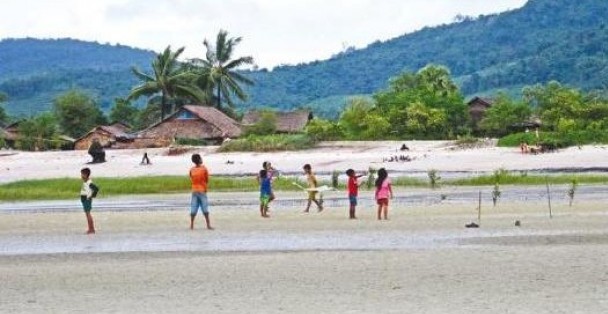Ko Ko Gyi, a leading members of the 88 Generation Students group, on Thursday accused local authorities of cheating residents of southern Burma’s Dawei Township who were forced off their land to make way for a major development project.
At a seminar hosted by a youth organization that recently prepared a report on the Dawei deep-sea port and special economic zone project, Ko Ko Gyi said that some who lost their land received far less in compensation than was paid by the project’s Thai developer.
Speaking to The Irrawaddy on Friday, Ko Ko Gyi repeated the charges.
“In order to profit from the project, the local authorities bought land from the people at low prices and then sold it at much higher prices. In some cases, they even threatened the owners, telling them that the government would simply confiscate their land if they refused to sell it,” he said.
He added that tensions in the area have been high since local residents learned that they had been cheated.
“Only those who refused to sell their land to the authorities and sold it directly to the companies got the right price,” said Ko Ko Gyi, who traveled to Dawei in May to speak to local people about the project.
The seminar on Thursday was held to launch a 40-page report prepared by a group called the Dawei Development Association, titled “Local People’s Understandings of the Dawei Special Economic Zone.”
The report highlights the situation of people facing relocation from 18 villages in the project area. The group said that the purpose of the report is to lobby the local authorities and inform affected people about the project’s impact.
According to the report, there are some 2,000 households in the villages, totaling more than 13,000 people.
The US $8.6 billion project belongs to Italian-Thai Development PLC (ITD), Thailand’s largest construction company, which signed an agreement with the Burmese government to develop the southern seaport in 2008.
ITD has been granted a 75-year concession to use the land for the project. The ITD will invest 50 percent of assets in the project, while Max Myanmar, a Burmese company, will invest 25 percent.
Last month, the Thai government approved a 33.1 billion baht ($1.1 billion) budget for infrastructure that will link up with the Dawei project.

















